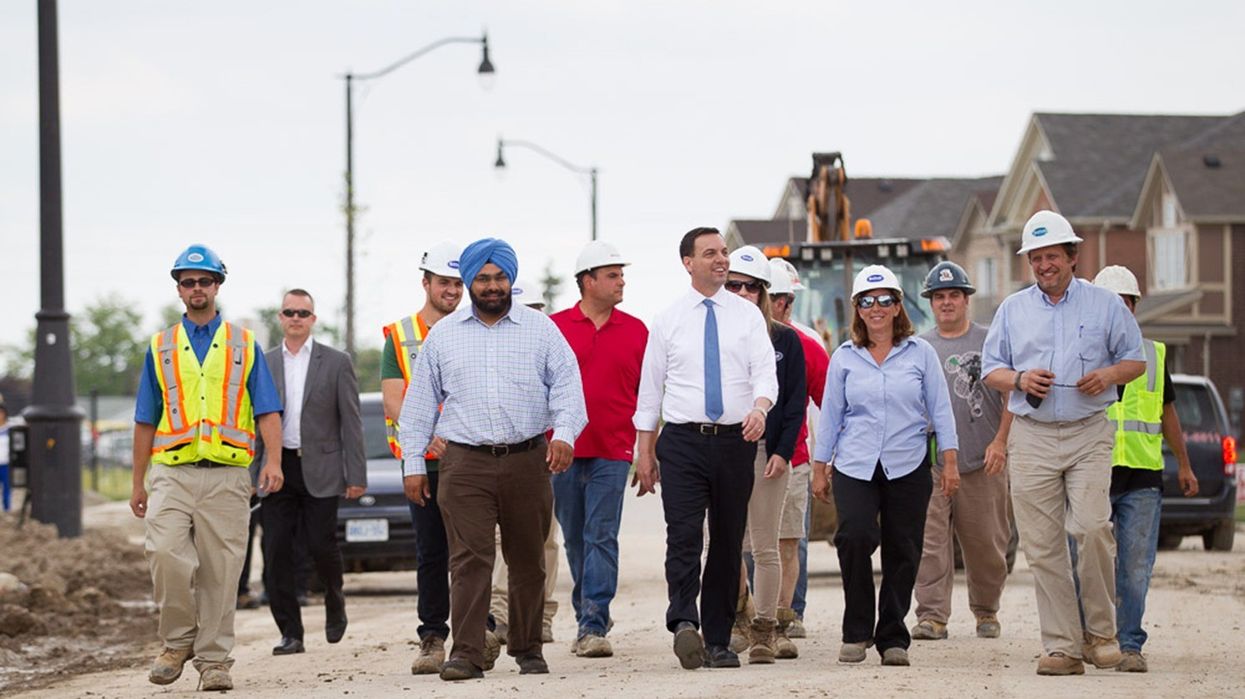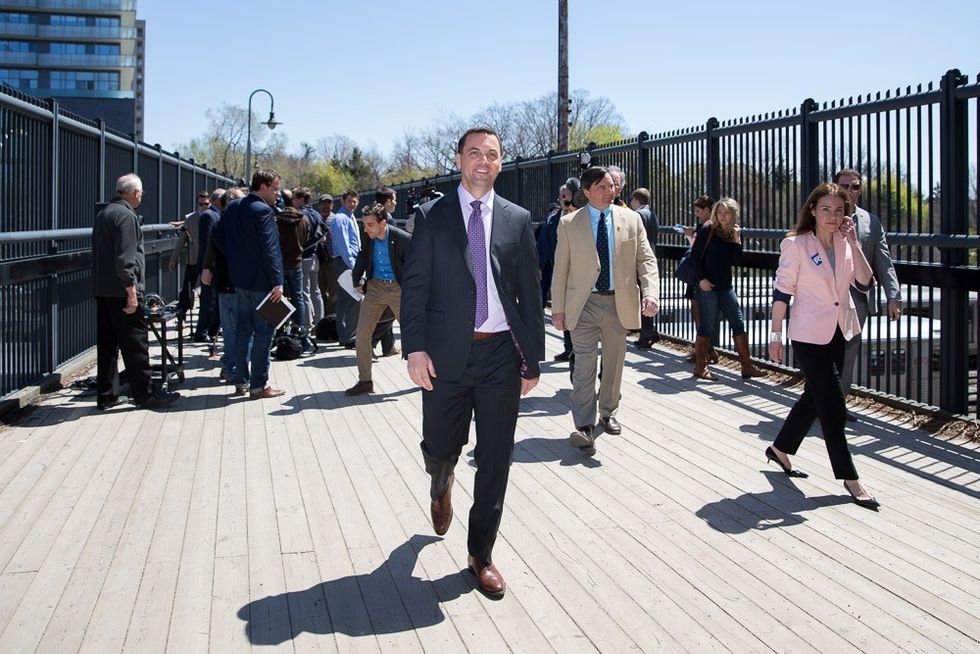
Tim Hudak must love the heat, because the man can’t seem to get out of the kitchen. After 21 years in politics, he’s stepped into real estate — as new CEO of the Ontario Real Estate Association (OREA) — during a GTA-wide shortage of housing supply and subsequently spiking prices, which has left a generation of southern Ontarians struggling to enter the market. The former leader of the Progressive Conservative Party of Ontario is working with municipal and provincial governments to improve affordability and supply, and recently chatted with Toronto Storeys about his new job. (This interview has been lightly edited.)
TS: What are some goals or priorities for 2017, in your new role at OREA?
We’ve taken a much stronger and more influential voice in the public affairs debate, so we’ve already had success in doubling the land transfer tax rebate, now up to $4,000 relief for first-time homebuyers, which is enormously consequential across the province. For most places outside the GTA, that means that homeowners won’t pay a single dollar in land transfer taxes.
In Toronto, it’s a good start. We’re working with the Toronto Real Estate Board to push the city of Toronto for a similar break for first-time homeowners in the big city.
Second, we’ve taken a very strong stance on behalf of homeowners and prospective homeowners by calling for changes in terms of policy towards more affordable home ownership. I think there’s no other group like Ontario realtors who can speak up, not simply of realtors, but for the people they know in their communities, and the neighbourhoods they know best. They’re the voice of the average homeowner or those that aspire to be — we plan on being that voice.
TS: How’s life for real estate agents these days? Demand is hot but supply is low.
There are almost 70,000 realtors in the province of Ontario and nearly 44,000 of them are in the GTA. While the increase in home prices in the GTA is grabbing headlines, behind those headlines is the unfortunate fact that there’s actually low levels of overall sales — particularly in the highly valued, single-family-home category. We have an extraordinary supply crunch. At the end of the day, that means intense bidding wars and higher prices ... Fewer home sales means less overall business.
So we’ve put a real focus on increasing housing supply, primarily because we believe in the Canadian dream of homeownership. When I was in my late 20s or early 30s, I bought my first home and most of my buddies did. Today it looks like millennials are going to be “generation screwed.”
So we’re playing a very strong role — including meeting with the premier and cabinet ministers — to say we need to increase housing supply, and to free up more resales in the GTA, so the next generation has a chance of actually owning a home.
TS: What is some good news in Toronto’s housing market?
It shows that homes are a great investment and Toronto is a great place to live. The increase in demand is actually a good thing. It means Toronto is a great place to live and raise a family, it means Toronto has been a focal point for people from B.C. to Newfoundland to find a job, because the job market is better here than in other parts of the country. And, as always, it’s a call to immigrants from across the world to make their start, so those are all good things.
The problem is that we’re not increasing housing supply at that rate, and as a result prices are being bid up.
TS: So, the good news is … Toronto is great.
The good news is that people want to live here! (laughs) The opposite would be worse, if everybody was trying to get out of the market.
It’s not a terrible problem to have, and there are actually some clear solutions that Ontario realtors have put on the table.
We’re building new subway lines, extensions and LRTs — that’s also a good thing, this is a record investment in mass transit. However we don’t have the zoning laws keeping up with that development, so we’re building subway lines and mass transit along low-density zoning areas. There should be increased density so we can actually put more homes along those lines and give people that option.
It doesn’t make a lot of sense from a public policy point of view to spend tens of millions of dollars in transportation to all go to single homes. You need to intensify along those lines.
TS: And we still haven’t done that yet.
Nope. Any time this happens, it really gets bogged down in small local politics, or caught in an enormous bureaucracy at the Ontario Municipal Board.
This is a role, again, that we’ve been calling on the province to play — in cooperation with the city — because I think it makes a tremendous amount of sense.
TS: We read about stagnating incomes and the shrinking middle class, yet there seem to be buyers available to participate in these wild bidding wars. Is this just the move-up market? Or is this just record debt?
I think different economists will come from different directions. We’ve certainly heard about the “bank of mom and dad.”
But at the end of the day, the good thing here is that people still see owning a home as a smart investment. And it is. The OREA did a survey in December and we asked a question: In today’s market, is it smarter to rent or to own your own home? And we still had 81 per cent of people say that it’s smarter to own your own home.
So people are either making extraordinary sacrifices, financially, or many are choosing to drive farther and farther away to have a house with a backyard and a bit of space.
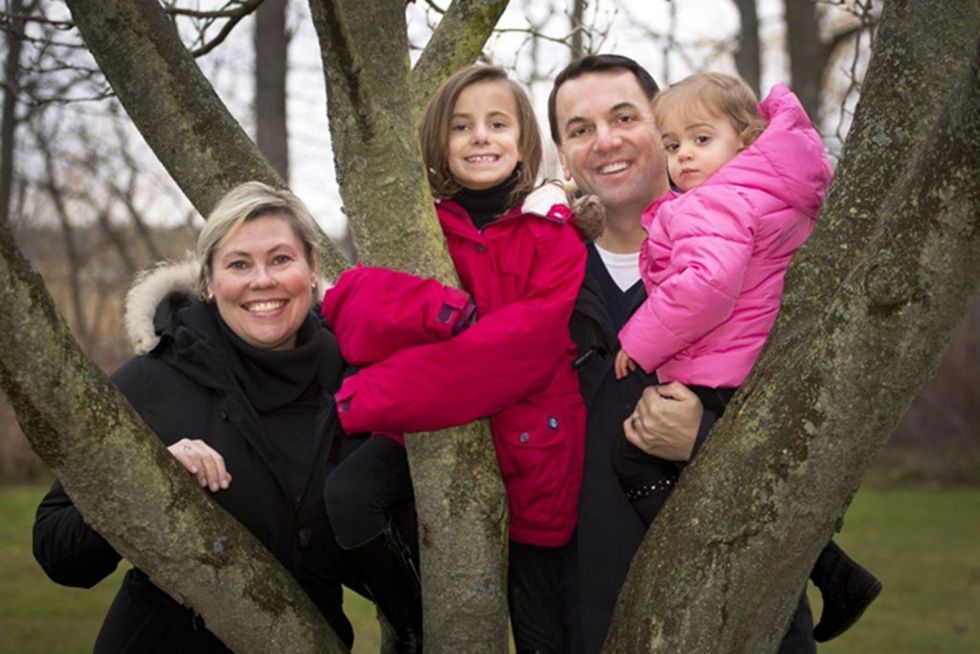
TS: What are we doing wrong when it comes to housing supply? What other cities or jurisdictions could we learn from? Who is doing it right?
No. 1 — we’re not doing enough to produce the ‘missing middle’ of homes. So townhomes and semi-detached homes. We’re seeing a lot of condos go up — that’s a good thing. It’s hard to find room for more single detached homes in the city of Toronto.
We could do a lot better when it comes to the missing middle, for two reasons. First: This can be starter homes for young families, or that professional woman who just got her first good job.
Secondly, these are places where empty-nesters can go but still stay in the big city. So they could downsize and free up a family home for somebody else.
So, top of the list, we need to change the outdated rules and regulations that are restricting housing supply, particularly for Toronto and the missing middle.
No. 2 — the land transfer tax in Toronto is really strangling the market. My wife and I lived at Avenue and Lawrence and six or seven of our neighbours decided that, when they had families, it was too expensive to move even across the street, because the land transfer tax was tens of thousands of dollars. So they just renovated their own home. Good for them, they got some more space, but it means that fewer starter homes come on the market for the new family or the new graduate. So we need to lower, or at the very least freeze, the Toronto land transfer tax, to free up more supply.
And No. 3 — Vancouver has mountains and an ocean surrounding them, but we’ve created our own artificial barriers here in Ontario that have dramatically limited housing supply and new homes. So we need to take a fresh look at this pile of rules and regulations, that were probably originally well intentioned, but have had the cumulative effect of having the lowest number of new housing starts in over two decades.
The bottom line is — you’ve got a lot more people that want to move to the GTA. That’s great, but we have a lot fewer houses. When you have more people choosing fewer houses, prices go up and affordability slips out of the grasp of many young people.
TS: When we talk about housing affordability for millennials, what can actually be done without addressing the other issues — student debt and jobs?
There’s no doubt that, while Toronto is stronger than most of the rest of the country, it’s still a pretty tight job market. And I certainly feel for graduates who played by the rules, followed every step their parents recommended, got a good degree or diploma, and hopefully are in the process of landing a good job — but they still can’t get a home of their own.
Every time anyone talks to me about my new job — after having a public profile from 21 years in politics — the first thing they tell me is the story about their late-20-something son or daughter who’s still in mom and dad’s basement, or living above the garage.
I think all political parties will be focusing on the job situation, the cost of living, but also we need to make sure that we have homes to move into. And that’s something we’re moving up the ladder when it comes to consideration at Queen’s Park.
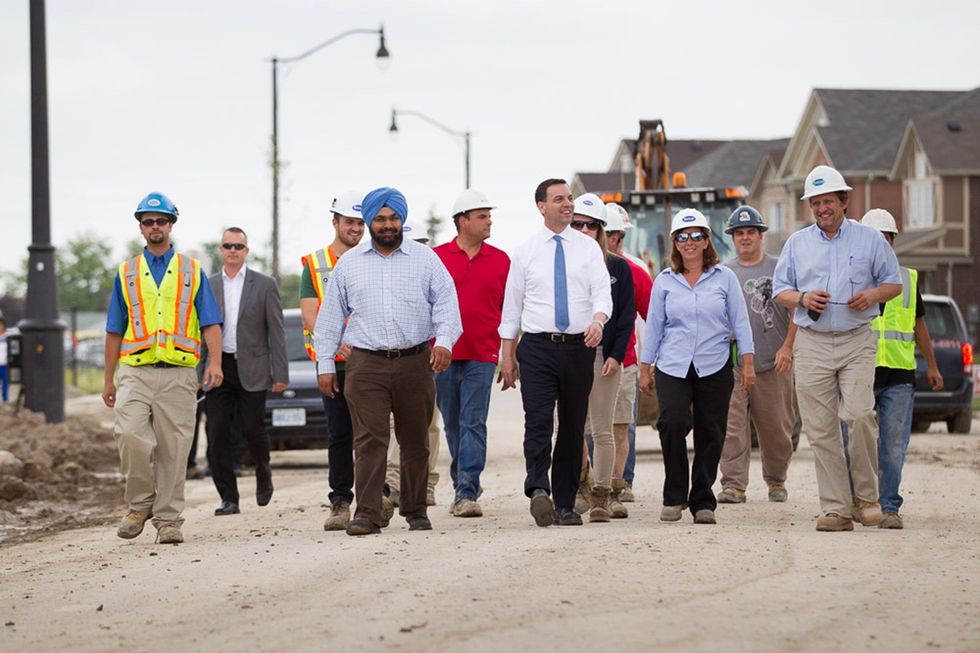
TS: But we have condos under $300K in some areas — perhaps not the most desirable — and that can be pretty affordable.
I’m sure there will be lots of ideas on the affordability side, including land transfer tax relief. We’ve had progress in the province so I’ll give them credit where credit is due. Unfortunately the city of Toronto is looking at a new land transfer tax hike that’s going to take that money away.
We are actually seeing more condos coming into the supply side of the equation and that’s a good thing. As a result, the condo price increases have not been anywhere near those of detached or semi-detached homes.
But for a lot of people, I hear, ‘I want to escape from the shoebox, I wouldn’t mind having a bit of a yard or more space.’ And that’s why it’s essential to clear aside obstacles to allow more of the missing middle and single-family homes.
TS: What do you think about the “greatest transfer of wealth and property” that’s coming up — as in, when the baby boomer inheritances move to the next generation. U.S. figures are estimating that transfer of wealth and property to be in the trillions of dollars … Will younger generations actually stand to gain a lot in the next few decades?
People have been talking about that coming for some time and you have to think about it, but we have a real, genuine supply crunch today. And the phenomenon in the past was that, the boomer generation — as the kids leave the nest — they tend to downsize and maybe move somewhere else in the city and open up that family home for the new family. But that’s not happening today.
We’re seeing a new phenomenon where people are holding onto their homes much longer and that contributes to the supply crunch. And part of the solution for that is to have more supply in that missing middle, which allows you to have a nice home, just a bit smaller, for the boomer generation.
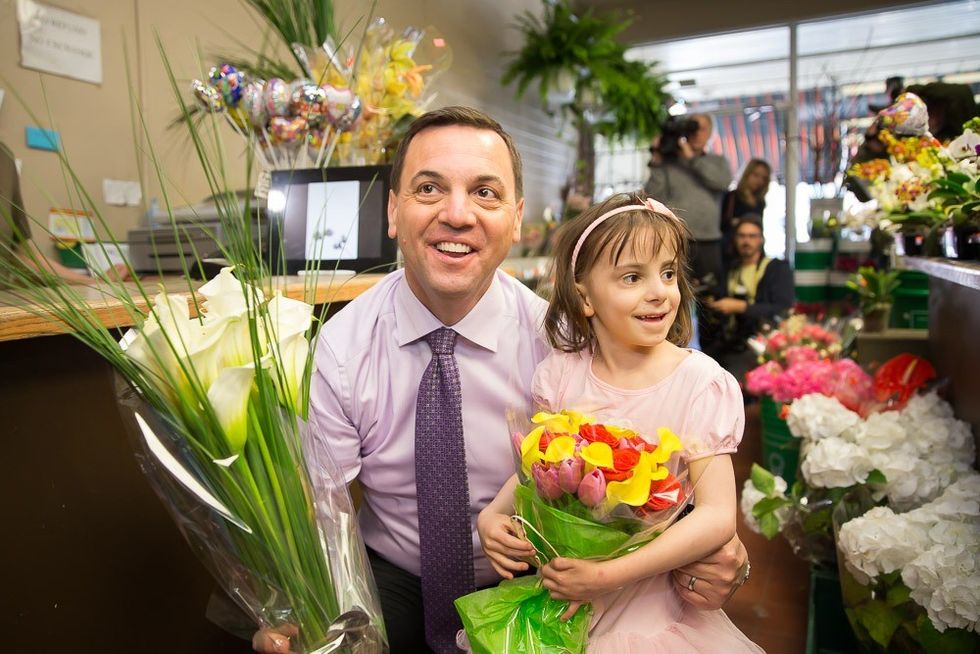
TS: Are you saving for your daughters’ education, or for your daughters’ down payments?
(laughs) Right now we have the RESP.
Deb and I live at Yonge and Lawrence; we just bought a new home. I took on the new job as OREA CEO, so we’ve been proud homeowners in the Yonge and Lawrence neighbourhood for two months now. Our realtor did a fantastic job — we had a great price, we sold the former semi-detached for a lot more than we paid for it, so those are all good things. It always helps to hire a professional realtor. So, bottom line, we just went through that circus of bidding wars and the stress — will your bid count? Will you need to change it? All of that.
So we’ve lived it, but I’m confident it’s going to be a good long-term investment for us and for our kids.
TS: What do you miss about politics?
I did 21 years, which is actually longer than they give murderers when they get a life sentence. (laughs)
It was a great experience and I wouldn’t trade it for the world. I would encourage anyone who wants to make a difference; it’s just tremendously rewarding to get involved in the fight for things that you believe in.
But I came to a point in my life where I said, I didn’t want to be a lifer. And I was really excited to join OREA when my predecessor Ed Barisa announced his retirement. I’ve always had a very good relationship with him, I was actually the cabinet minister in 2002 that brought through the Real Estate and Business Brokers Act, and RECO (Real Estate Council of Ontario) as its delegated authority. So it was an area where I had done previous work and was excited about.
Politics is great because, every morning, you wake up excited about the job ahead and you never know what’s going to hit you — and this is very much the same. I’m enjoying it.
